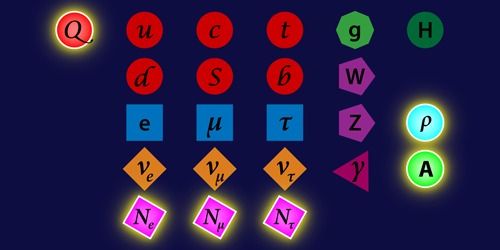(Phys.org)—A quartet of researchers has boldly proposed the addition of six new particles to the standard model to explain five enduring problems. In their paper published in the journal Physical Review Letters, Guillermo Ballesteros with Université Paris Saclay, Javier Redondo with Universidad de Zaragoza, Andreas Ringwald with Max-Planck-Institut für Physik and Carlos Tamarit with Durham University describe the six particles they would like to add and why.
The standard theory is, of course, a model that has been developed over the past half-century by physicists to describe how the universe works, and includes such things as the electromagnetic, strong and weak interactions, and also describes what are believed to be the particles that play a role in it all. To date, the theory lists 17 fundamental particles and has stood up against rigorous testing, but it still does not include explanations for what are considered to be some fundamental things.
The researchers are quick to point out that they are not proposing any new physics. Instead, they have assembled what they believe are the most promising theories regarding several problems with the standard model and their possible solutions, and have put them together as an outline of sorts for research moving forward.
